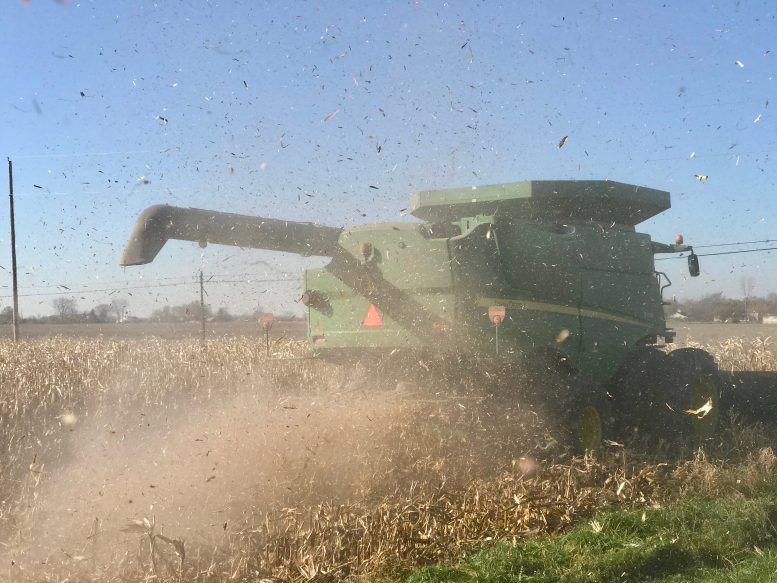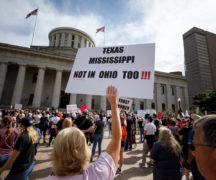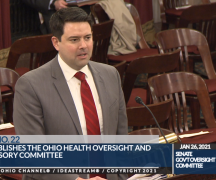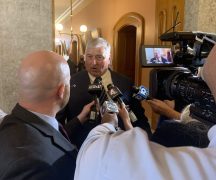By Perry Beeman
States Newsroom
Congress should use voluntary, financially appealing programs to encourage farmers and foresters to help address climate change, experts told the U.S. Senate agriculture committee Thursday.
Speakers from the corn and soybean fields of Illinois to the rice fields of Arkansas told the panel that it would be best to work through existing farm programs to coax farmers to plant cover crops, trees and use plowing techniques that help sweep climate-warming carbon from the sky.
Farmers are unlikely to get rich off of trading carbon credits, representatives of farm groups said. And addressing climate change will be complicated when the answer in Iowa will be different than it is in Arizona. But they encouraged a bipartisan debate over how best to follow up on President Joe Biden’s promise to aggressively address the warming of the globe. And two of the techniques mentioned, promoting biofuels made with corn and soybeans and using cover crops, are central to the debate in Iowa.
Sen. John Boozman of Arkansas, the ranking Republican on the committee, said Biden’s goal of zero net carbon emissions from agriculture by 2050 is a complicated goal. “You still have to fuel the equipment, dry the corn or process the sugar beets or ethanol and manage the transportation of commodities,” Boozman said.
He asked Idaho farmer Cori Wittman Stitt, an adviser to the Environmental Defense Fund, if she is concerned about future energy costs.
“Yes, the cost of energy is always top of mind with our operation,” Wittman Stitt said. “But our biggest concern is (whether) we are going to be asked to make changes in our operation without being compensated for those changes.”
Several speakers examined the prospects of an expanded carbon market. Former U.S. Department of Agriculture Under Secretary Bill Northey of Urbandale, a former Iowa agriculture secretary, last week told Iowa Capital Dispatch farmers now are making $25 or less per acre on the carbon exchange.
Arkansas rice farmer Mark Isebell, a representative of USA Rice, told the Senate committee he tried the carbon market in a pilot project and found “it wasn’t profitable.” He dealt with seven agencies on a project that covered 200 acres.
“At the end of the day, we made $133,” Isebell said. “It didn’t work in our situation very well.”
Isebell said it is clear agriculture can make a difference. “But how we access the carbon markets and whether that’s the best way… We need to be careful that we don’t pin ourselves down to only that potential revenue stream and look at other ways that we can maximize the environmental benefits,” he said.
Oklahoma cattle rancher and wheat farmer Clay Pope, representing the National Farmers Union, said farmers are finding ways to save money and reduce their operations’ environmental footprint.
“The bottom line is that our investment in soil health has helped us better prepare our farm for climate change in a way that has helped both our productivity and the environment… For the last four years, we have had some of our best wheat crops ever while using roughly half of the fertilizer we did when we conventionally tilled our land,” Pope said.
Sen. Cory Booker, D-New Jersey, said the committee should focus on voluntary actions supported by expanding U.S. Department of Agriculture conservation programs that already are oversubscribed in some cases.
Sen. Debbie Stabenow, D-Michigan, chair of the Senate Committee on Agriculture, Nutrition and Forestry, said several acts are being reintroduced:
- The Growing Climate Solutions Act would set up a system to encourage certain practices and a voluntary carbon market.
- The REPLANT Act would support reforestation.
- The Rural Forests Markets Act also would promote carbon markets and other programs for small-scale foresters.
“The climate crisis might seem insurmountable, but our farmers and foresters are an important part of the solution,” Stabenow told committee members.





